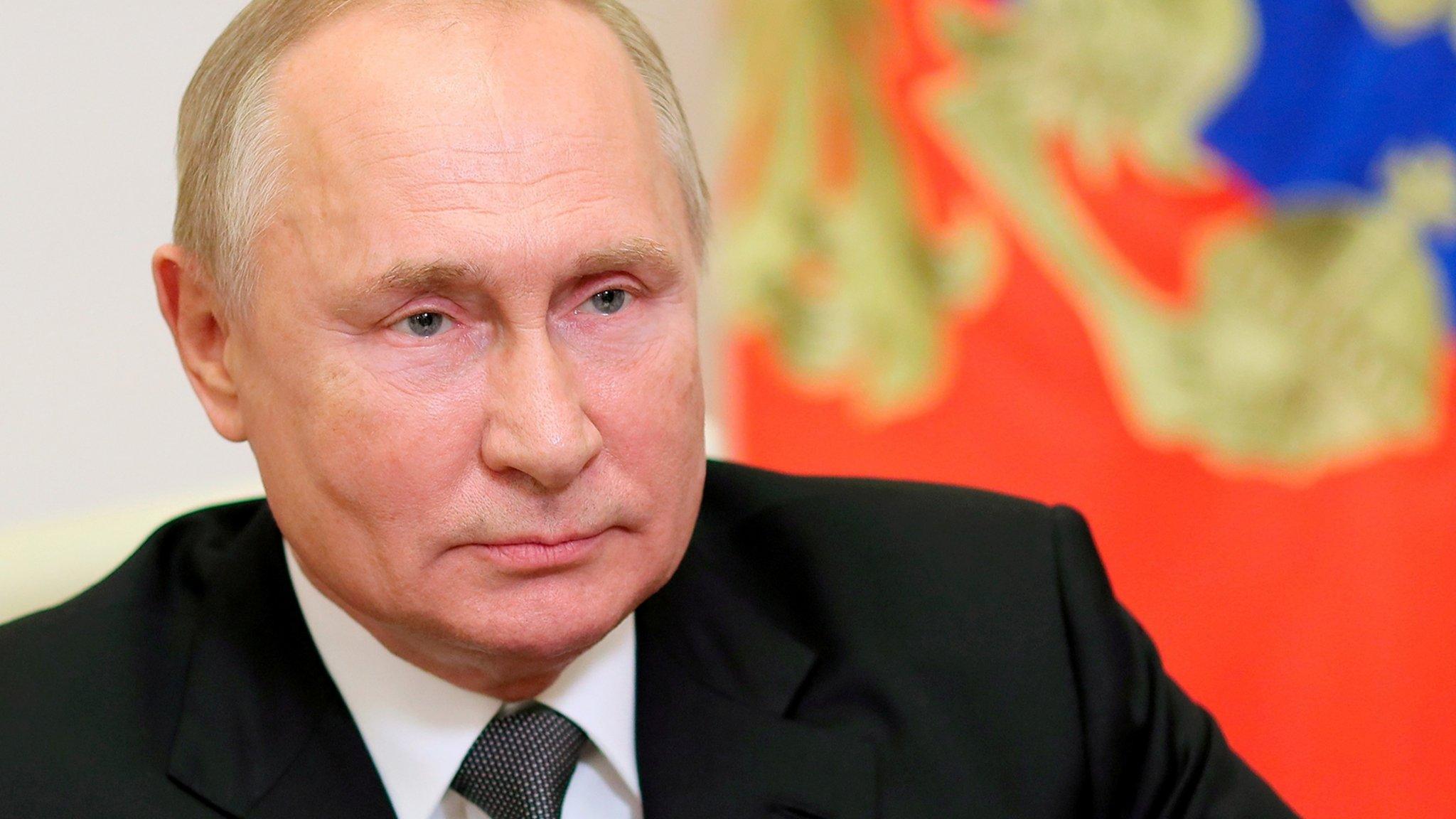Russia: Wagner group's armed rebellion ends - and Putin is still in power
- Published
What's been happening in Russia?
A lot happened in Russia this weekend that threatened the power of Russia's President Vladimir Putin.
It's linked to the war between Russia and Ukraine.
President Putin is the leader who ordered the Russian invasion of Ukraine last year. However, the Russian army isn't the only Russian group fighting in Ukraine.
There are also private armies, who fight for money and are known as mercenaries, who are fighting on the Russian side.
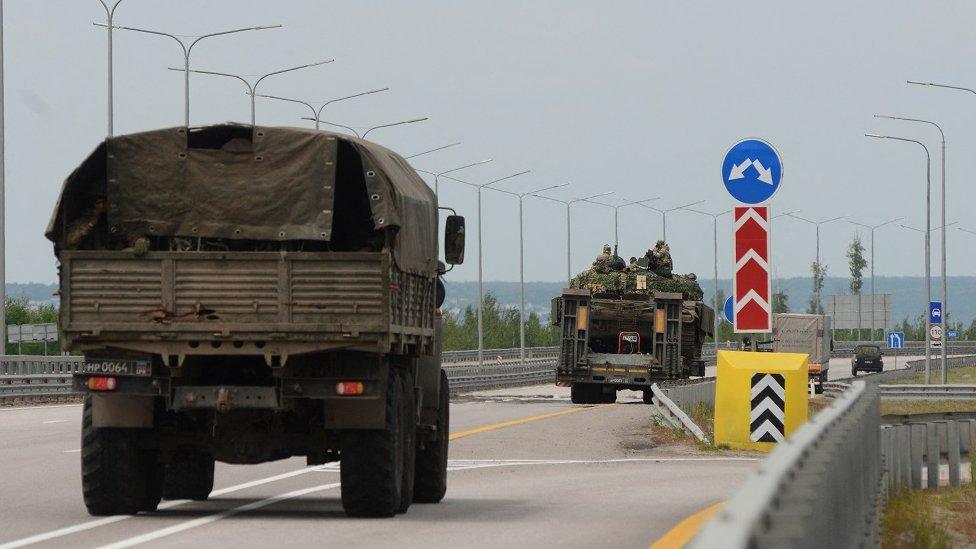
The Wagner group was heavily involved in the capture of a city called Bakhmut in eastern Ukraine
What is the Wagner Group and who is its leader?
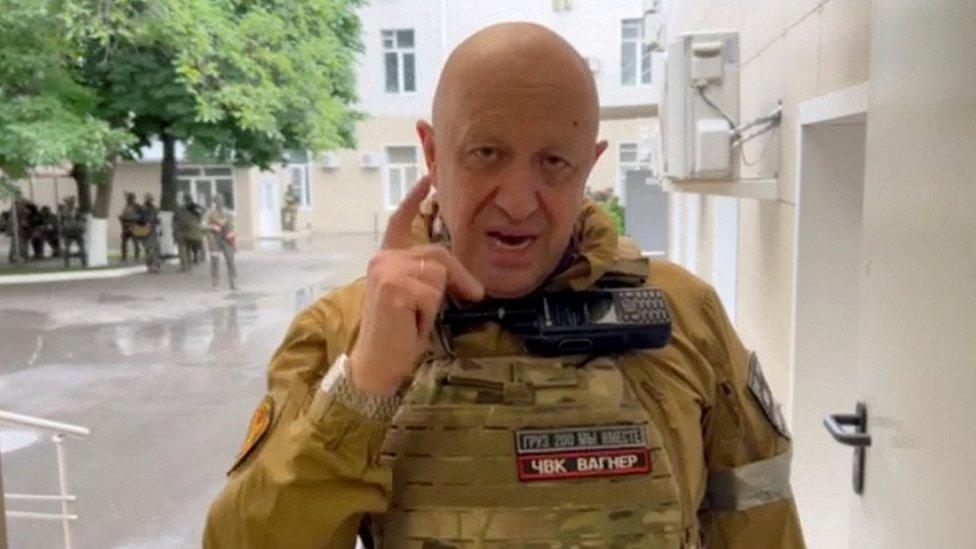
Yevgeny Prigozhin is the leader of the Wagner group and has criticised the Russian army
Wagner is one of the biggest group of mercenaries and it's estimated there are tens of thousands of Wagner troops fighting alongside Russian soldiers in Ukraine.
The Wagner group was heavily involved in Russia's capture of a city called Bakhmut, which is located in eastern Ukraine.
The group's leader is a man called Yevgeny Prigozhin and he's threatened leaders in the Russian military.
Tensions had been growing between Wagner and the Russian army over how the war has been fought so far, and Prigozhin heavily criticised Russia's military leadership in recent months.
He repeatedly accused Russia's ministry of defence, which oversees the country's armed forces, of deliberately failing to provide his group with enough weapons.
Wagner's leader also claimed the Russian army launched a deadly attack on his forces in Ukraine, something that Russia denied.
He was careful to avoid criticising President Putin himself, although he was very negative about those around Putin.
Prigozhin said Wagner troops would march towards the Russian capital of Moscow in an armed rebellion on Saturday unless top military figures met with him.
How did Putin respond?
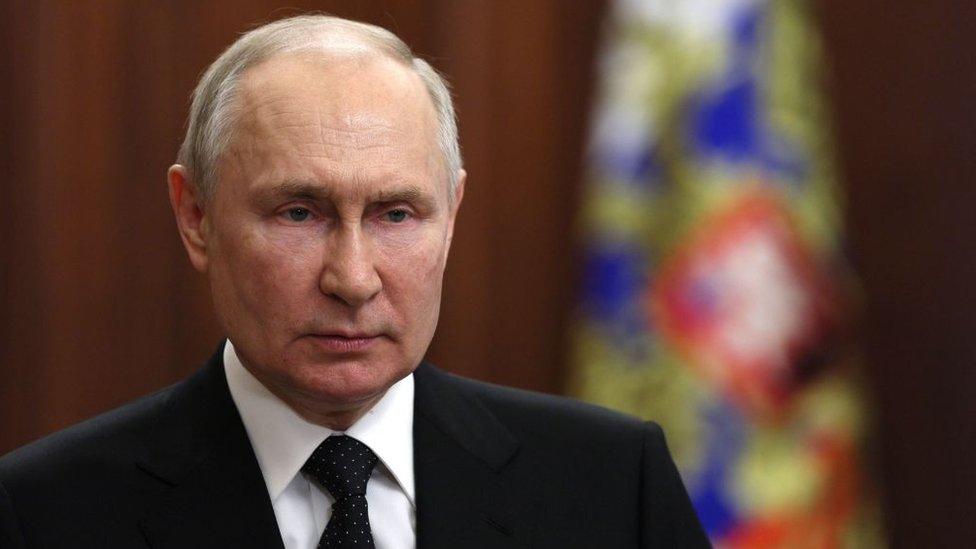
President Putin said Wagner's actions were disloyal
President Putin reacted by ordering Prigozhin's arrest. He said Prigozhin and the Wagner mercenaries had betrayed Russia.
In a speech on Russian TV he accused Wagner of treason, which is when a person or group goes against their own country.
He said Wagner's actions were "a stab in the back of the troops and the people of Russia" and vowed to punish those involved in the rebellion.
What happened next?
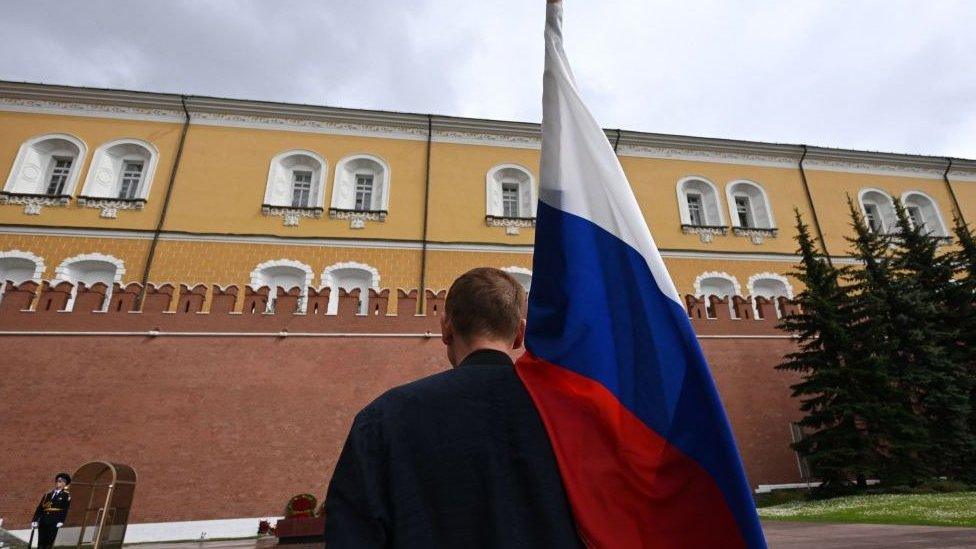
The world is watching Russia to see how the rebellion might affect Russia and the war in Ukraine
As the leader of Russia, Putin likes to appear powerful and always in control. What happened was a big challenge to his authority.
The Wagner troops seized control of some important Russian military facilities.
But by Saturday night something happened that stopped Prigozhin and Wagner marching to Moscow.
The leader of Belarus, a neighbouring country friendly to Russia, set up talks between Prigozhin and Putin to help resolve the situation and calm things down.
Reports say a deal was done that allowed Prigozhin to go to Belarus.
Neither Wagner troops nor Prigozhin will be charged in relation to the rebellion, the Russian government said.
Experts say while the immediate threat to President Putin's authority has gone away, it has left him looking weakened.
The world is now watching to see what impact that could have on the war in Ukraine.
- Published22 February 2023
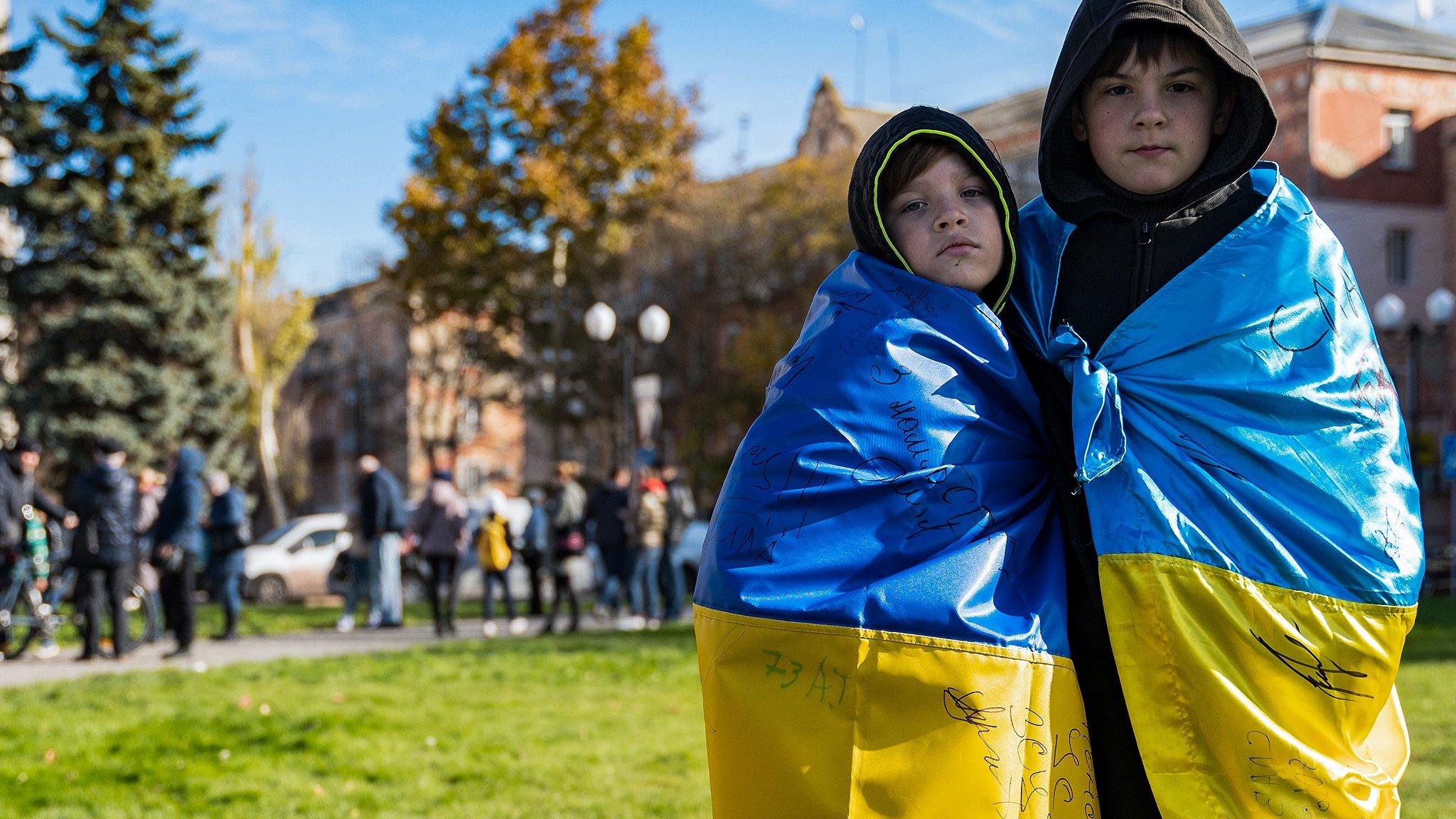
- Published28 February 2022
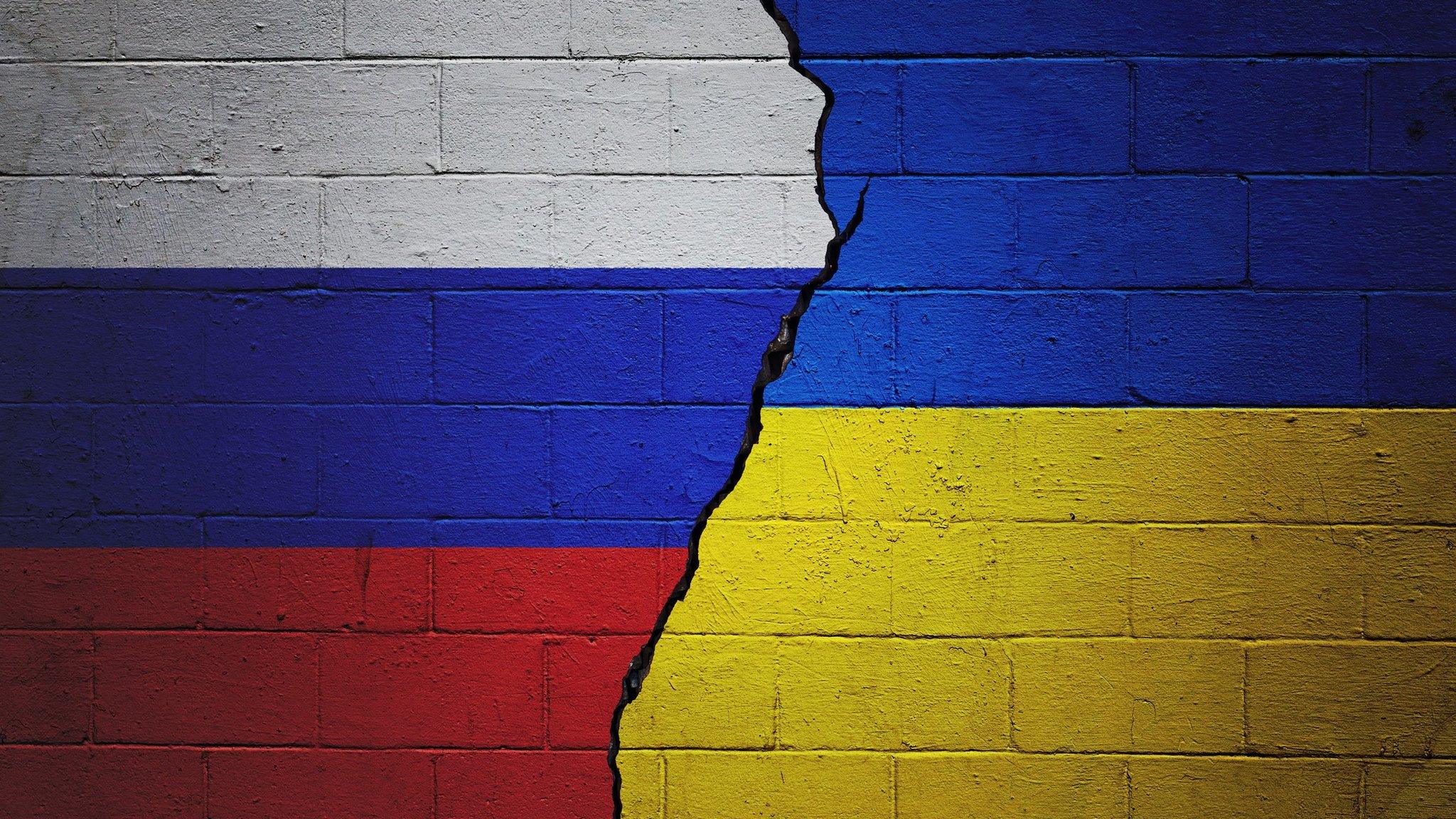
- Published26 February 2022
